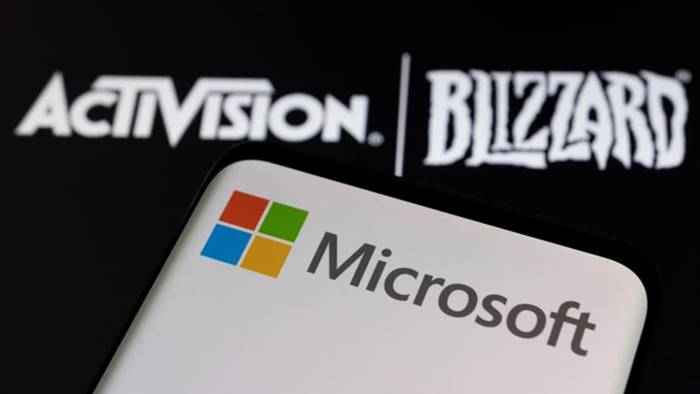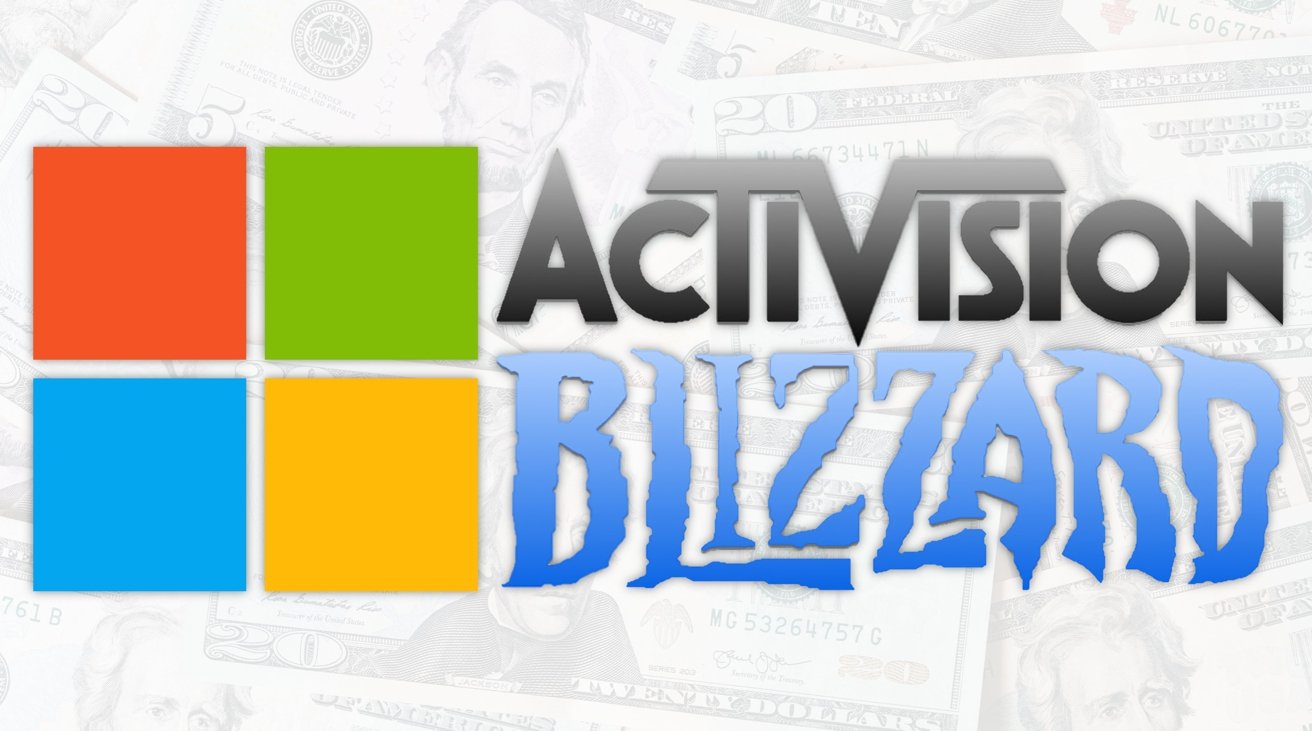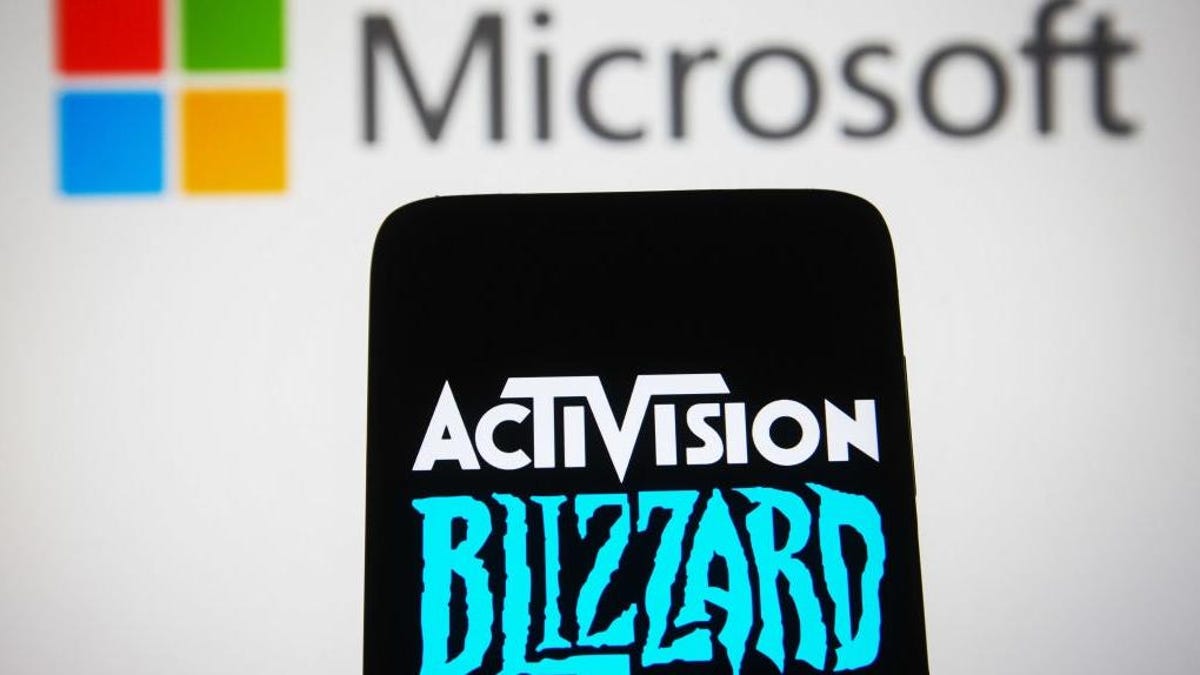microsoft activision. When Microsoft bought Activision, a lot of people were shocked. I mean, Microsoft is a software company and Activision was a games publisher—did they even fit together? But there was another deal that never happened: one that would have made everyone involved very rich. That’s because it would have turned out to be the biggest acquisition in gaming history. So what happened with this deal? What went so wrong that it didn’t go through? And could it still happen today? Let’s find out!
a group of students at the University of Chicago were at a bar when they caught wind that Microsoft had bought the company.
Microsoft Activision were rumored to be in talks about a deal in the early 2000s. A group of students at the University of Chicago were at a bar when they caught wind that Microsoft had bought the company, but the deal never happened.
Atari also reportedly considered buying Activision in 2009, but it was not to be.

microsoft buying activision
- Microsoft Activision have a deal.
- An arrangement has been made between the two companies.
- It’s not unheard of for two companies to join forces, particularly if they think it’s in their best interest to do so.
The two companies could be working together on a new project, or they could be sharing resources and technology. Whatever the case may be, it’s likely that both companies will benefit from their partnership.
activision microsoft
microsoft activision. When Microsoft acquired Activision in 2008 for $6.5 billion, the world of gaming was forever changed. But it almost didn’t happen.
On July 19, 2007, then-CEO and founder of Activision Bobby Kotick made an announcement: The company would be acquired by Microsoft for $1.3 billion in cash—a deal that at the time was considered small potatoes compared to other acquisitions happening at the time (and since). And yet what followed was a lengthy nine months between the initial announcement and when it actually closed (October 11).

microsoft and activision
Microsoft and Activision have both agreed to a $5.9 billion deal that will see the two companies join forces. Microsoft will be taking over from Activision, and will pay nearly $6 billion for its new company.
microsoft activision. Activision has been around since 1979, but it’s only recently that they’ve really started making themselves heard in the gaming industry. In 2009 they merged with Vivendi Games, which is when they started getting their name out there. The merger between these two companies brings together some pretty large names in gaming: Microsoft has Halo and Gears of War; while Activision owns titles like Call of Duty and Skylanders—to name just a few!
when will microsoft activision deal close
microsoft activision. Microsoft has been talking about its deal to buy Activision for several months now. The news was first reported by CNBC in February, and the two companies have made it clear they still plan on closing this summer.
However, there are still rumors that the deal might not go through as planned. In June 2019, Reuters reported that Comcast and Tencent had both expressed interest in buying Activision Blizzard (the parent company of Activision). This could be a factor in Microsoft’s decision to delay its acquisition of the game publisher until 2020 or 2021 instead of finalizing it this summer as originally planned.

But the deal never happened.
But the deal never happened.
Microsoft Activision were engaged in discussions about a possible acquisition. The price tag for Activision was reportedly $8 billion, which would’ve been a record breaker at the time. Negotiations broke down over Microsoft’s reluctance to sell off Bungie, the developer behind Halo (and eventually Destiny). Additionally, Microsoft wanted to take control of Activision’s Call of Duty series. But Activision CEO Bobby Kotick didn’t want to give up any control over one of his company’s biggest moneymakers—especially not after how much effort it had taken to create a game as successful as “Call of Duty.”
He wasn’t the founder, but he was there from the beginning.
microsoft activision. You may have heard that the founder of Activision was a student at the University of Chicago, but what you might not know is that he wasn’t there from the beginning. The man who founded Activision had a part-time job working for Microsoft and was also an avid gamer. In fact, he was out drinking with friends when he heard about Microsoft’s $5 million acquisition of his company!
He played video games all day long during college and after class until his mother told him off for abandoning his studies and wasting time playing games instead of studying. This spurred him on to work harder—and it paid off in spades because now this man owns two companies worth billions: Activision Blizzard Incorporated and Activision Publishing Incorporated (the latter being responsible for publishing video games like Call Of Duty).
The first thing they needed to do was get an office.
microsoft activision.To begin this journey, the partners needed to find an office. They settled on a small space in downtown Chicago and moved in with hardly any furniture. At first, they shared a single desk and computer among all three of them.
The room was cramped and stuffy—the window had been nailed shut by previous tenants who were apparently trying to keep themselves from being heard while they worked late into the night—but it didn’t seem to bother Bill Gates, Paul Allen or Steve Ballmer at all. They worked hard out of that office for years before moving into their own building downtown later on down the road.
They settled on an empty store in the heart of downtown Chicago.
They settled on an empty store in the heart of downtown Chicago. It was a great location, but it proved to be too small for their needs. The company eventually moved out when it got more funding and hired more employees.
After they left, the building was used by as a retail store specializing in clothing and shoes.

So they decided to try and make a video game of their own.
- So they decided to try and make a video game of their own.
- Their inspiration was the love of video games they had developed over the years.
- They wanted to create something that would be more accessible than other games of the era.
- Instead of making something complicated, they thought about what could be done differently from other games: how could it be easier for people to pick up and play?
microsoft activision. The building was demolished in the late 1990s, and a new one was built on the site. They didn’t use any of the original materials from the first store, so there’s no trace left of what once stood thereTheir answer was to create a game that only had one button. The goal was simple: move your character from the left of the screen to the right, avoiding obstacles along the way. It’s not as easy as it sounds!.
The partners contracted with a computer programmer named Bob Flanagan and his software company, Mechanical Engineering Services Inc., or MES for short, to write the code for the game.
microsoft activision. The partners contracted with a computer programmer named Bob Flanagan and his software company, Mechanical Engineering Services Inc., or MES for short, to write the code for the game.
MES used DEC PDP-10 computers running the BASIC programming language to develop Space Wars. The concept was inspired by Strat-O-Matic, a board game that simulated professional baseball (the name was later used by Activision for its own popular line of football simulations). In fact, Activision originally planned on using an Atari 800 system as its primary platform—but when they found out that MES couldn’t get enough memory space on an 800 model due to its lower resolution display, they switched over to Apple II instead.
But Rimar needed more cash if he wanted to get his project off the ground.
Rimar needed more cash if he wanted to get his project off the ground. So it was a big deal when, in October 1998, Microsoft announced that it would pay $150 million for the rights to develop its own WebTV-based software for Windows.
microsoft activision.Rimar had struck gold with his idea of creating an online gaming network accessible through television sets. The public loved them and Microsoft saw the potential too—an opportunity to sell more PCs while also bringing a new market segment into play: video game players who might have never considered using computers before but were now interested because they could do so without buying any new hardware.
This is where things start to get messy.
This is where things start to get messy. David’s family wasn’t happy with the idea of him working on a video game instead of getting a real job. They thought he should be doing something more traditional and stable, like becoming an accountant or doctor or something. To convince them to let him pursue his dream, David had to come up with some pretty creative solutions:
- He couldn’t afford the ticket himself so he called an airline and said he wanted to buy a ticket for his father-in-law who was coming out from Spain just for one day so they could go see [a] concert together
- He went to the airport without telling anyone where he was going
But David’s family wasn’t exactly thrilled about it, either.
microsoft activision. But David’s family wasn’t exactly thrilled about it, either. They didn’t think it would work, and they were worried about him wasting his time on a pipe dream—something that could cost him a lot of money in the end. His family was afraid he would lose all his money trying to get this company off the ground.
But David didn’t care what his family thought. He was determined to make this company work, and he was willing to risk everything. And so he did—he started spending all his money on this idea and making it happen.

Here’s how it went down
- David was a big fan of the board game Risk.
- He wanted to create a computer game version of Risk.
- He was working at a software company called MES, but decided to leave and strike out on his own with a few other people. They formed an independent game development studio that they called MicroProse Software Incorporated (MSI).
- In 1983, MSI released their first computer game: Megalopolis, which was like SimCity for DOS systems. It wasn’t super successful though because it didn’t have much replayability value once you’d played through all the scenarios that came with it.[1]
- A year later in 1984[2], David had an opportunity to work on another project–this time making an adaptation of the board game Risk[3].
Conclusion
Does this story sound familiar? If you’ve ever worked at a startup, it probably does. And it’s not just startups that have these kinds of problems—any company with a lot of people working together is going to have some challenges. The important thing is to keep thinking about how to make your organizational structure work better and avoid the pitfalls others may have fallen into before you. This means staying open-minded when new ideas come up, but also being careful about who gets involved in decision making processes so that you don’t end up caught between competing interests or conflicting priorities within your own organization!
Read More: severance apple tv








